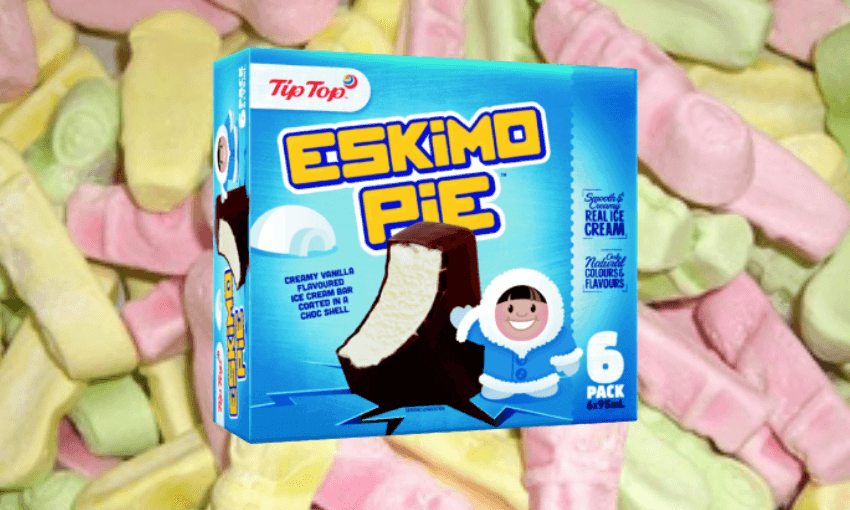It’s a nice hot day in the summer and you reach for a … polar pie? New Zealand companies are removing the word Eskimo from their products. Recently arrived Canadian Justin Giovannetti explains that the move to banish the harmful and derogatory slang is overdue.
The word Eskimo is about to disappear from New Zealand’s shelves.
Following in the steps of companies around the world that are removing racist or insensitive names and logos from their products, Tip Top and Pascall confirmed on Wednesday that the word seen as derogatory by Inuit will soon be history.
Both companies faced questions about the name in the past and had defended the continued use in light of the decades-long attachment New Zealanders have with the frozen treat and lollies. Times have changed, they now say, especially in a climate where venerable brands like Uncle Bens and Aunt Jemima have been retired.
“While Pascall Eskimos have been enjoyed in New Zealand for 65 years, it is important to take this action to ensure that the business is part of the solution and helping drive positive change,” the company said in a statement.
Eskimo Pie is one of Tip Top’s most popular desserts, but the company told Stuff it is no longer comfortable with the name. “Over that time, the name has changed meaning and we acknowledge that,” said Tip Top director Ben Schurr.
Both companies made the decision only after Dreyer’s Grand Ice Cream, the American producer of Eskimo Pie, announced last Friday it would be doing away with a name that was now “inappropriate”.
New Zealanders might have fond memories of the treats from their childhoods, but for many people from around the world, seeing the products on shelves and in freezers can be a halting experience. In 2009, Seeka Lee Veevee Parsons, an Inuit from northern Canada, was visiting New Zealand when she discovered both products. She asked the companies to change the names and was told no. Tradition trumped decency.
I’m Canadian. On Sunday I walked past a freezer at Countdown filled from top to bottom with the frozen product, complete with a child in a white fur-lined parka. It was an upsetting moment. My jaw hung for a few seconds.
Put simply, the word Eskimo is not OK and hasn’t been for about a half century. The indigenous people who live in the world’s Arctic region are largely called Inuit. The majority of them, who live in Canada and Greenland, have been asking people to stop using the word for some time.
There have been studies that show that the word Eskimo means either “eater of raw flesh” or “snow shoe netters”. It’s not so much the definition that makes it troubling as the fact that it’s a word artificially imposed on Inuit that has been used as a derogatory way of describing them for a very long time.
Resist the temptation to go on Google and find stories defending the use of the word. They exist. Some Inuit use the word to describe themselves. That’s absolutely fine. You shouldn’t. You’re not using the word in a bad way? That’s fine. Stop using it.
Worse than the word, according to Natan Obed, the president of Inuit Tapiriit Kanatami, is when Inuit are used as mascots. For years the head of the organisation representing many of Canada’s Inuit has been saying that they aren’t mascots, especially not when it’s done in a cartoonish and culturally insensitive way. Both the mascots for the lollies and the frozen treat fit this description.
I’ve watched this debate in Canada for years. I used to be based in Edmonton, where the football team is called the Eskimos. It’s clear to everyone in that city, except for the most ardent traditionalists, that the name change is overdue and is coming sooner than later. The team, to its credit, doesn’t use Inuit as mascots.
Neither company has announced yet what they’ll replace the word and mascots with, but as a country that’s used as a stepping-stone to Antarctica, New Zealand should have plenty of inspiration to the south. Now if only Australians would follow New Zealand’s lead and start saying ‘chilly bin’.

